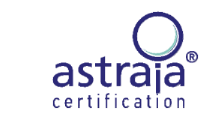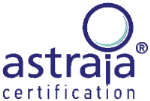ISO 22000 Standard
OBJECTIVE, SCOPE AND PURPOSE OF FOOD SAFETY MANAGEMENT SYSTEM (FSMS)
The objective of FSMS is to support the continuous improvement of food safety management within the organizations. It is the first food standard to be internationally approved, recognized and accepted. ISO 22000 standard is likely to replace all existing regulations for the certification in the food industry.
WHO IS FSMS INTENDED FOR?
This standard is applicable to all organizations that supply the food chain in any way.
BENEFITS FOR ORGANIZATIONS WITH CERTIFIED FSMS:
- the identification of food safety risks and the implementation of the necessary routine procedures;
- it goes beyond HACCP requirements, includes and supports the HACCP principles (the method of food process analysis, the identification of potential risks and the identification of critical control points to prevent unsafe food from reaching the consumer) formulated by Codex Alimentarius;
- it ensures the compliance with applicable legislation;
- the elimination of the risk of failure with the possibility of releasing a potentially unsafe product, that endangers the company not only because of possible penalties from the state administration but above all, by the loss of customers from the potentially unsafe brand and thus the high financial loss;
- to obtain a competitive advantage in public procurement processes and in various tenders;
- the increase of awareness, the professional development and the personal motivation of the employees to improve;
- the increase in the credibility of the organization from the customers´, government institutions´ and other partners´ perspective;
- the energy and resources saving, the reduction in waste and recycling costs;
- the non-systematic food safety risk management can result in high direct costs and loss of reputation.


